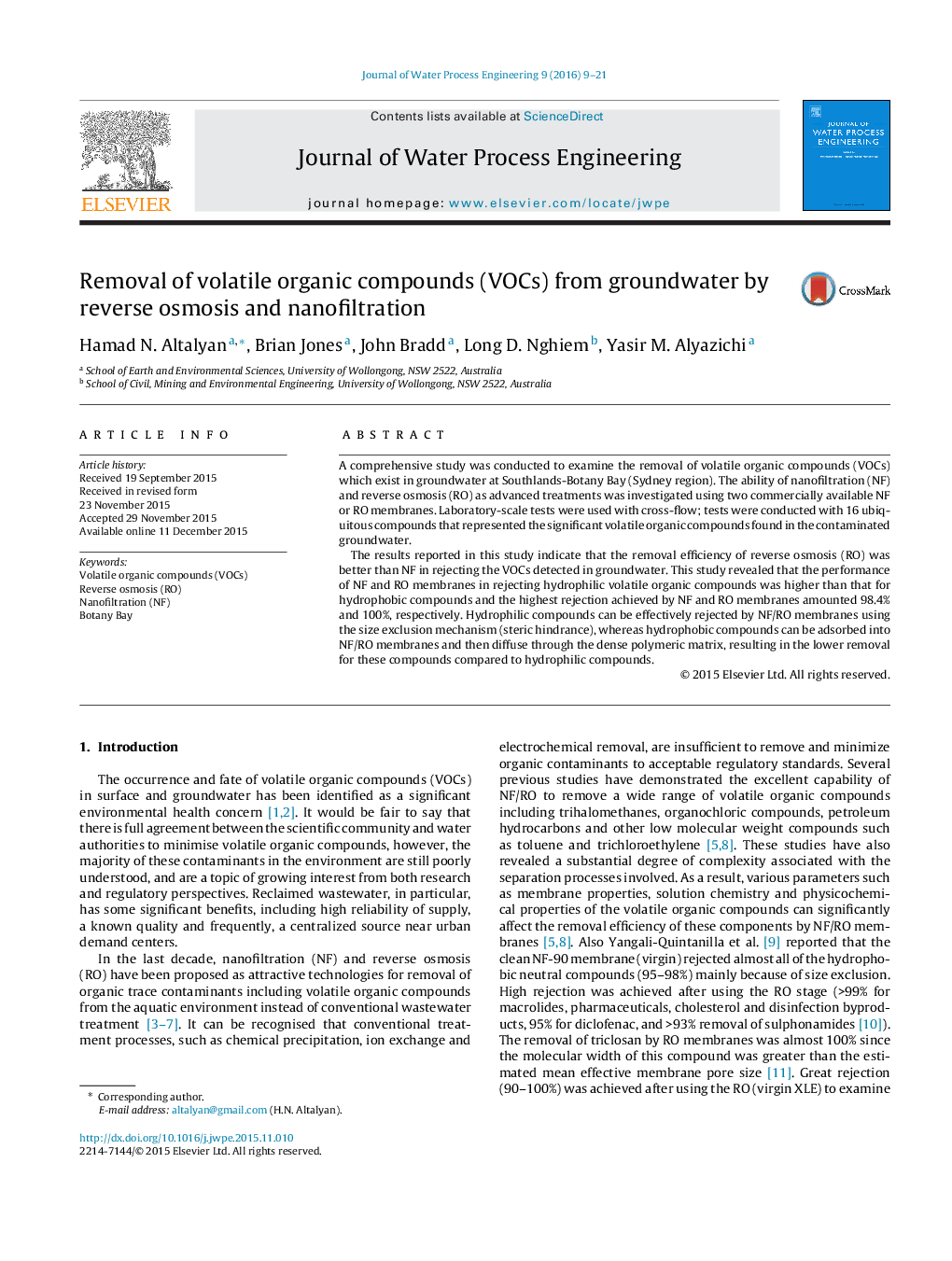| Article ID | Journal | Published Year | Pages | File Type |
|---|---|---|---|---|
| 232465 | Journal of Water Process Engineering | 2016 | 13 Pages |
A comprehensive study was conducted to examine the removal of volatile organic compounds (VOCs) which exist in groundwater at Southlands-Botany Bay (Sydney region). The ability of nanofiltration (NF) and reverse osmosis (RO) as advanced treatments was investigated using two commercially available NF or RO membranes. Laboratory-scale tests were used with cross-flow; tests were conducted with 16 ubiquitous compounds that represented the significant volatile organic compounds found in the contaminated groundwater.The results reported in this study indicate that the removal efficiency of reverse osmosis (RO) was better than NF in rejecting the VOCs detected in groundwater. This study revealed that the performance of NF and RO membranes in rejecting hydrophilic volatile organic compounds was higher than that for hydrophobic compounds and the highest rejection achieved by NF and RO membranes amounted 98.4% and 100%, respectively. Hydrophilic compounds can be effectively rejected by NF/RO membranes using the size exclusion mechanism (steric hindrance), whereas hydrophobic compounds can be adsorbed into NF/RO membranes and then diffuse through the dense polymeric matrix, resulting in the lower removal for these compounds compared to hydrophilic compounds.
